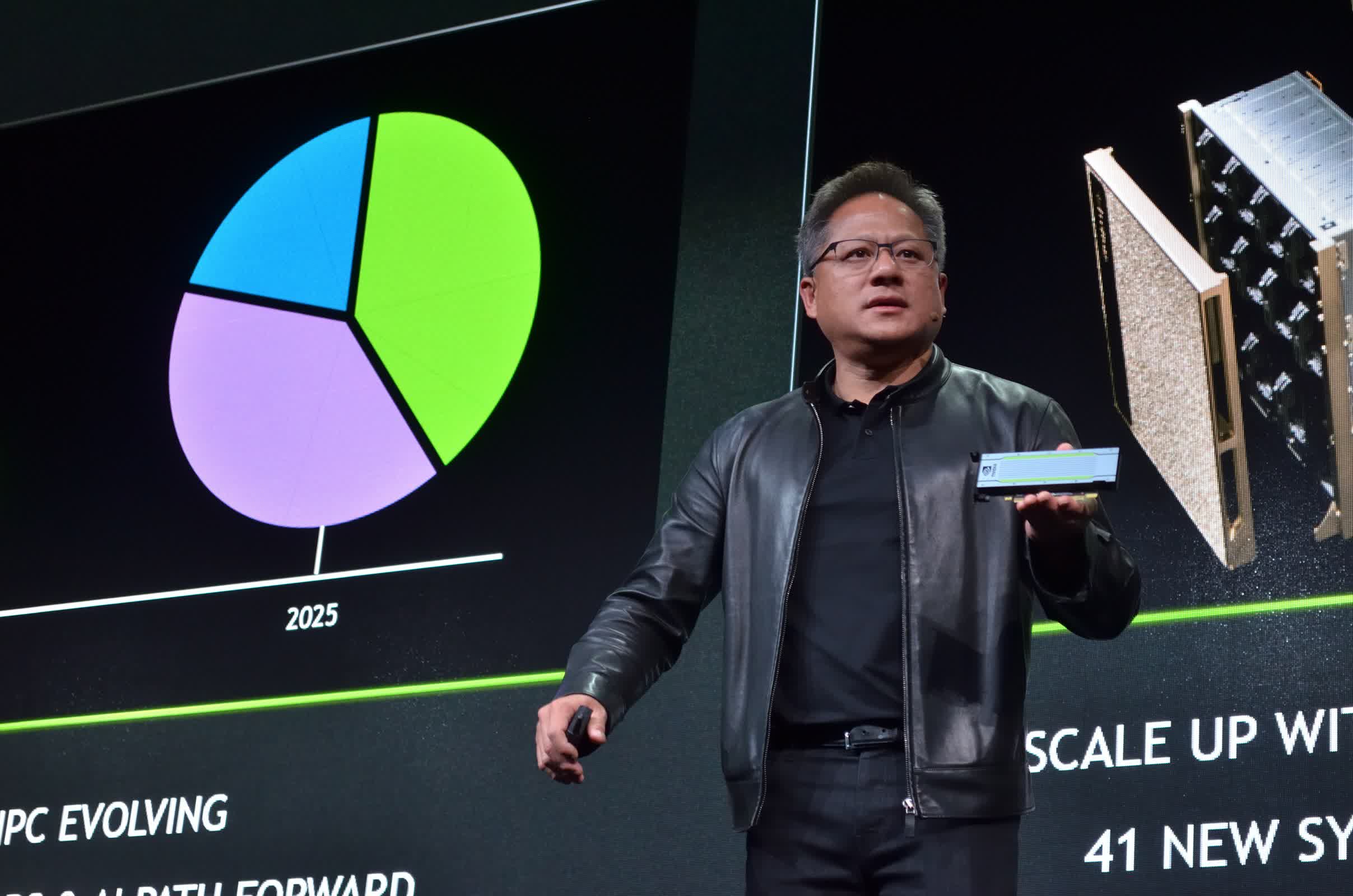Big quote: In an interview with Bloomberg, Nvidia CEO Jensen Huang made it clear that while the company navigates a complex geopolitical landscape, it remains committed to innovation and ensuring that American technology continues to set the standard worldwide. He highlighted both the opportunities and risks facing US tech leaders – and the pivotal role that government policy will play in shaping the industry's future. "Irrespective of the near-term revenue success we have had, we can't ignore the fact that the Chinese market is very important," Huang said.
Huang was candid about the company's position amid shifting US trade policies and intensifying global competition in artificial intelligence.
Huang, whose remarks came on the heels of Nvidia's earnings call, was asked about the influence of US policy on the company's recent financial success. While he acknowledged the challenges presented by export restrictions, he reserved his most enthusiastic comments for two key initiatives associated with the current US administration.
"The idea of tariffs being a pillar of a bold vision to re-industrialize to onshore manufacturing and motivate the world to invest in the United States is just an incredible vision," Huang told Bloomberg. He described the strategy as "utterly visionary," emphasizing its potential to transform the American economy for decades to come.
"We're all in on the idea. We're setting up plants and encouraging our partners from around the world to invest in the United States, and we have a lot of stuff going on, and so I'm very excited about that," he said.
Huang also praised the decision to rescind the so-called AI Diffusion Rule, which had previously limited the export of advanced AI technologies. "This isn't about limiting American technology, but this is about accelerating American stacks around the world to make sure that, before it's too late, the world builds on American stacks during this extraordinary time, the AI era," he explained. "These two initiatives are completely visionary, and it's going to be transformative for America."
Despite these endorsements, Huang did not shy away from addressing the difficulties Nvidia faces in the Chinese market as a result of US export controls. The company, which once counted China as its largest chip market, expects to lose approximately $8 billion in sales this quarter alone due to the restrictions.
"We have a whole bunch of engines firing right now," Huang said, pointing to Nvidia's diversified customer base and strong performance of its latest Blackwell chip, which he called "a home run."
Yet, the loss of access to China has had significant consequences. Huang noted that the country is home to "maybe 50 percent of the world's AI researchers," and that US policy has prompted many developers to pivot to domestic alternatives such as Huawei. "That's an unfortunate part of changing policy," he said, expressing hope that American technology could regain its foothold in the future.
Huang warned that Chinese competitors are rapidly closing the technological gap. "The Chinese competitors have evolved," he said, singling out Huawei as "quite formidable." He pointed out that Huawei's newest AI chip now rivals the performance of Nvidia's H200, which was state-of-the-art until recently.
Under current regulations, Nvidia is unable to ship even its downgraded H20 chip to China. "It's not possible to degrade the product's capabilities further," Huang said, adding that any new product for the Chinese market would require US government approval.
The interview also touched on the impact of US visa restrictions on Chinese students. Huang, who immigrated to the United States from Taiwan, underscored the importance of attracting global talent. "I believe the administration still feels very strongly about the incredible importance of immigration," he said. "We would like the brightest to come here."
